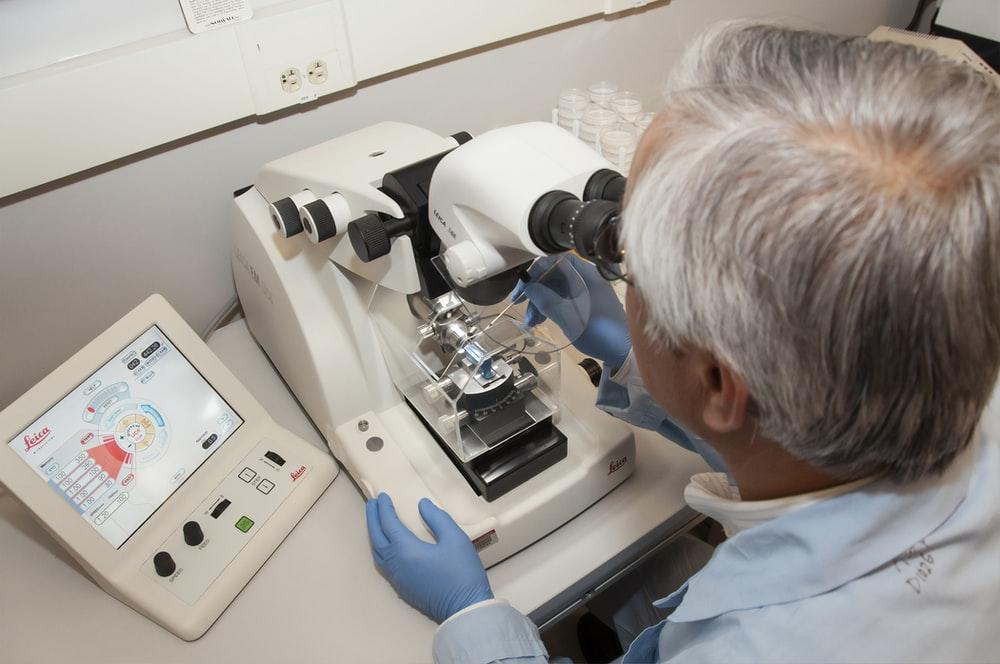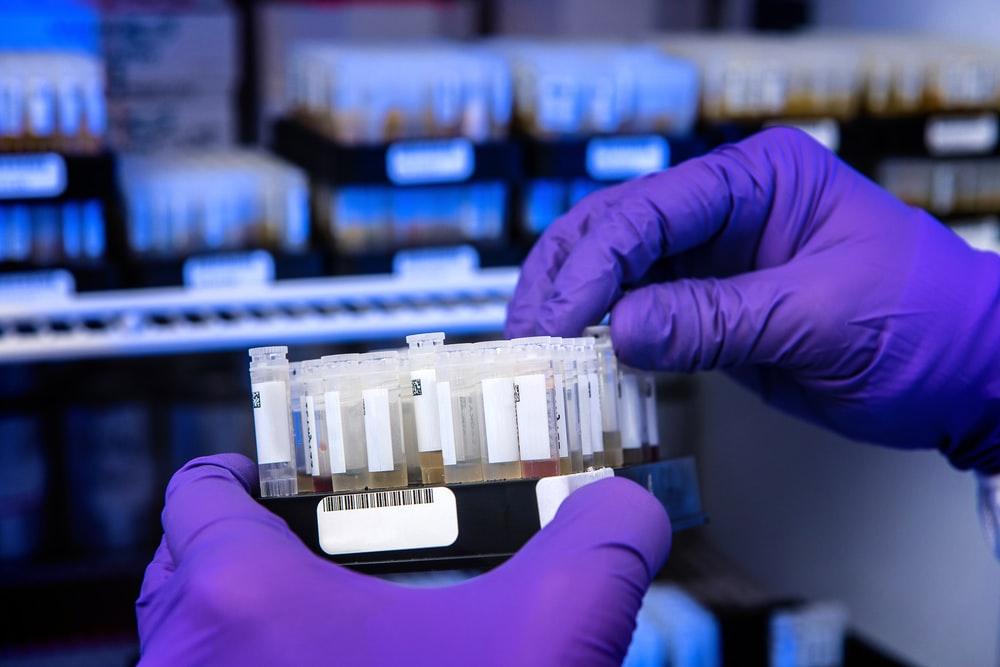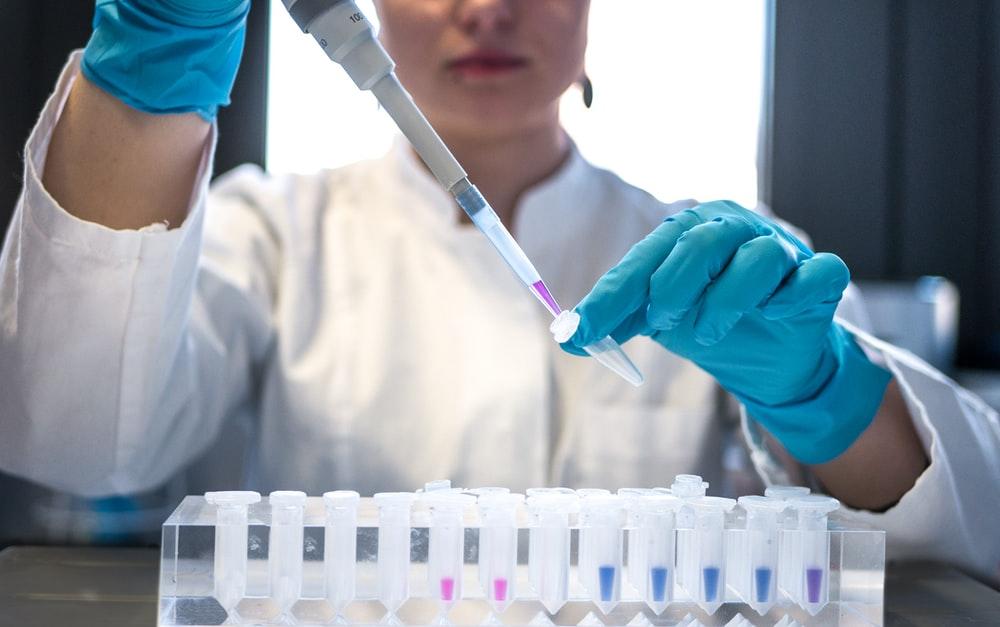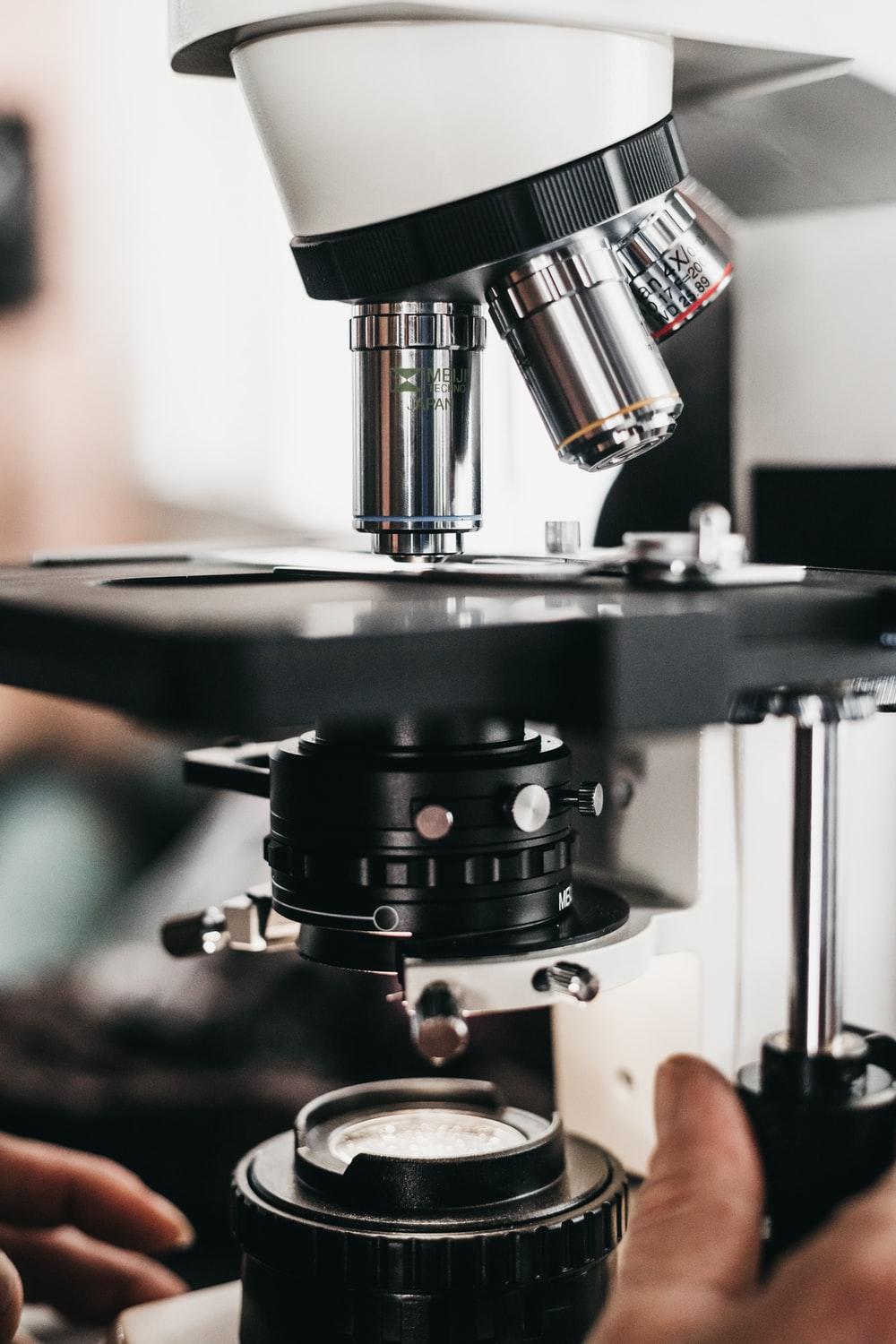What are the Stages in Custom Antibody Production?
Aug 5th 2022
What are the Stages in Custom Antibody Production?
Customization and laboratory synthesis of bodily functions has continued to grow with modern science and technological advancement. Many scientists are devising new ways of contributing to the general welfare of human society by ensuring that where the body might be lacking in its ability to undertake some bodily functions, there can be a solution to remedy these inadequacies.

Image Source:
https://unsplash.com/photos/_gAE02nLoWs
The bodily function of antibody production has not been left behind in the modern advancements in science and technology that have erupted in the recent past. Scientists are continually identifying the best way to ensure that the antibody production in the body is not only working as expected, but scientists can address any limitations as soon as they arise. Before embarking on a discussion of custom antibody production, it is crucial to deliberate on the functions of antibodies in the body.
Functions of Antibodies In The Human Body
Essentially, the immune system creates defensive proteins called antibodies, which protect the body from foreign actors. They bind to antigens present in foreign substances, which include viruses, bacteria, and fungus, and eliminate them from your body. Antibiotics defend you when your body comes into contact with an unwelcome substance. Antibodies made by the B cells of the immune system bind to these foreign chemicals and drive them out of your body.
There are five types of antibodies based on where these antibodies are in the body. They are:
- IgA: IgA, found in saliva, tears, mucus, breast milk, and intestinal fluid, protects against ingested and inhaled pathogens.
- IgD: IgD supports B cell maturation and activation, although its precise function is unknown. It is located in the outer area of the B Cells.
- IgE: IgE antibodies are a class of white blood cells in the skin, lungs, and mucous membranes. Immunoglobulin E (IgE) antibodies help prevent allergic responses.
- IgG: Of all the immunoglobulins in your body, this antibody accounts for between 70 and 75 percent of them, making it the most prevalent. It is primarily present in blood and tissue fluids. Your body is defended against bacterial and viral illnesses by IgG antibodies.
- IgM: IgM antibodies, which are present in your blood and lymph system, serve as your body's first line of defense against infections. They also have a significant impact on immune system control.
The functions of antibodies in the body can be summarized as follows:
- The blood and mucosa secrete antibodies that bind to and neutralize foreign substances, including infections and poisons.
- Antibodies make the complement system punch holes in the cell wall of the bacteria and pathogen.
- Antibodies make it easier for phagocytic cells to engulf foreign bodies.
To understand the specific functioning of antibodies in the body, one must understand the following features of said antibodies:
Specificity
A specific antibody recognizes each particular antigen. For instance, an antibody that can identify the COVID virus wouldn’t identify the flu virus. On the other hand, the COVID virus cannot be recognized by an antibody that detects the flu virus. This characteristic is antibody specificity.
Diversity and Immunological Memory
Every antigen is recognized by the tens to hundreds of millions of distinct B cells in the body. Thus, the presence of B cells that generate distinct antibody molecules enables the body to defend against the invasion of infections. This alludes to the diverse nature of antibodies in the body.
The cells that produce antibodies that target specific antigens multiply and rise correspondingly after an infection. The antibodies shield the body from recurring infection through the immunological memory of the cells.

Image Source: https://unsplash.com/photos/CfS6A4U5g8M
Organic Production of Antibodies in The Body
The B lymphocytes produce antibodies. These are specialized white blood cells in the blood and the immune system. A B cell multiplies and clones when it comes into touch with an antigen. These plasma cells, also known as cloned B cells, unleash countless antibodies into your lymphatic and blood systems. As such, the production of antibodies in the bloodstream is a reactionary measure to the presence of harmful substances.
However, there are also naturally occurring antibodies that are in the bloodstream and are not contingent on the presence of harmful substances within the body. For instance, the body has antibodies in several places, including the skin, lungs, tears, saliva, and even breast milk. The colostrum, which is present in breast milk as generated a few days after giving birth, contains significant levels of antibodies. This is why doctors advise many mothers to breastfeed their children, especially after birth, to ensure that their immune system begins to shape up as early as at birth.
Reasons For Custom Antibody Production
As noted above, the development of science and technology has necessitated comprehensive research on how best to adapt to certain conditions and fight pathogens which target human bodies, thus causing diseases. In the field of biotechnology, the specificity attribute of antibodies facilitates broad applicability. High purity custom antibody production is necessary for these applications.
Typically, these antibodies are used with nanoparticles or other labeled detection platforms to detect antigens by conjugating them to sensor surfaces which require Antibody Sequencing Services and Antibody Production for their facilitation. Thus, custom antibody services produce purified antibodies with a particular antigen-specificity which they avail to the market for researchers and scientists alike. Custom Antibody Production helps to guarantee the availability of antibodies that are not only pure but are customized to undertake specific functions.
The process of antibody production services determines the kind of antibodies the company will generate. Typically, there are three types of custom antibody production:
Polyclonal Antibodies
A variety of antibodies produced by several B cell lineages are combined to form polyclonal antibodies (PAbs). These antibodies are, in fact, a collection of immunoglobulin molecules that react to a particular antigen, with each molecule recognizing a separate antigen epitope.
An animal is injected with an immunogen to generate polyclonal antibodies. After getting an injection of a specific antigen to elicit a first immunological response, the animal receives a secondary or even a tertiary vaccination to create more significant titers of antibodies against the particular antigen. After immunization, polyclonal antibodies may be separated directly from serum (blood without red blood cells and clotting components) or processed to form a serum-free solution.
This polyclonal antibody production process is tiered into stages as follows:
Peptide Design
Synthetic peptides are utilized in synthesizing antibodies, peptide hormones, and hormone analogs, as well as studies on the structure and function of polypeptides. New vaccinations, medications, and enzymes are also created using them. The amino acid sequence and length can affect the peptide's synthesis, purity, and solubility.
Peptide Synthesis
The process of creating short polypeptide sequences by adding one amino acid at a time is known as peptide synthesis. Scientists can use this method to produce particular sequences that stand in for protein domain epitopes. These brief sequences produce antibodies against that polypeptide by injecting them into animals. Scientists refer to it when peptide synthesis companies use solid polymers as solid phase peptide synthesis.
Notably, the first two steps would not be necessary if the client seeking services provides a pure antigen sample.
Animal Immunization
Producing polyclonal antibodies requires repeatedly immunizing an animal with a target antigen. Due to their ease of handling for immunization and bleeding purposes, animals, including rabbits, goats, and sheep, produce polyclonal antibodies. Rabbits are selected 95 percent of the time because they respond to most antigens. Their immune systems produce antibodies rapidly and in large quantities.
Serum collection
After the animal has received the antigen, it may receive multiple immunization processes to increase the quantity and titers of the desired antibody. After the numerous immunization processes are complete, the scientists can obtain the animal's serum. As noted above, the serum is the animal's blood without the various components such as platelets and red blood cells.

Image Source:
https://unsplash.com/photos/RlOAwXt2fEA
Titer analysis
Before the clients can receive the antibodies they had procured from a Custom Protein Synthesiscompany, the company must undertake a titer analysis to ensure the concentration is up to par and that the antibodies meet the requirements sought by the client.
The ELISA (Enzyme-linked immunosorbent analysis) test is frequently used to measure antibody titers. The highest quantity of serum (or lowest amount of antigen) still produces a positive signal in the ELISA titer of antiserum/antibody. Without delving into the intricate details of the process, a positive material is diluted five times or more and tested on the ELISA kits to assess antibody titer. The final diluted material that yields positive results on the ELISA test kits serves as the endpoint titer.
If you are conducting this test, you should be cautious about the sensitivity of the test kits. Elisa Kit Manufacturers advise that the standard will often attain an absorbance double that of the negative control as you dilute it with a given amount of antigen. This is the smallest amount of antigen that the ELISA can detect, and it also represents the assay's sensitivity limit. If a sample's absorbance is twice that of the negative control, you can declare it positive.

Image Source:
https://unsplash.com/photos/fN6K30xtiKE
Final antibody purification
The antibody purification system requires selective enrichment or targeted isolation of antibodies from serum. Antibodies can be purified in several different ways. From very basic to highly particular antibodies can be purified using these techniques. Animals given prepared antigens during immunization will create specific antibodies against the antigen. When isolated from serum or hybridoma cell lines derived from the tissue of the vaccinated animal, the antibody may be used directly (or after tagging with enzyme or fluorescent tags) to probe the particular antigen in Western blotting ELISA and several other applications.
Monoclonal antibodies
For monoclonal antibody production, the process is also in five levels.
The antigen preparation process intends to create an antigen that would be introduced to the animal to generate the desired antibodies. While the Protein Production Services department of the company may develop the antigens, the customer can also provide a highly pure protein or peptide for use. Subsequently, the animal is immunized with the antigen, after which the company can extract the serum. The hybridoma technique creates monoclonal antibodies tailored to a target antigen.
These hybridoma cells inherit the unrestricted growth potential of myeloma cells and the capacity to secrete antibodies from B-lymphocytes. A particular hybridoma cell line produces homogenous monoclonal antibodies that only detect a single antigen epitope. Lastly, the purification process, which entails removing antibody aggregates, is conducted.
Recombinant antibodies
Monoclonal antibodies produced in vitro through custom DNA synthesis are known as recombinant antibodies (rAbs). Recombinant protein expression does not need hybridomas or animals like that of monoclonal antibodies (mAbs), which are made using conventional hybridoma-based techniques. Thus, recombinant antibodies are monoclonal antibodies produced in vitro utilizing artificial genes by DNA synthesis companies using a protein expression service.
This approach is called custom protein production and may include Protein Expression and Purification Services. Using this approach, antibody genes are extracted from source cells, amplified, cloned onto a suitable phage vector, then introduced into a host such as e coli protein expression to produce sufficient functional antibody levels.
Any animal that produces antibodies may have its recombinant antibodies cloned through Custom Gene Synthesis, as long as the proper hybridization probes or oligonucleotide primers are present. As such, gene synthesis companies produce brand-new antibodies and antibody fragments in vitro thanks to the capacity to modify the antibody genes. The analysis of display libraries, which are often generated in yeast or phage, may then be used to choose desired properties resulting from such modifications in antibody sequence. Antibody protein sequencing services are essential in the recombinant antibody production process.
Parting Shot
Custom gene synthesis or antibody synthesis has guaranteed numerous scientific and technological advancements, especially in biotechnology and vaccine research. If you want to attain an antibody production process, you need to consult experts who are in a position to facilitate that for you. This will ensure that the range of techniques you wish to attain is conducted effectively.

